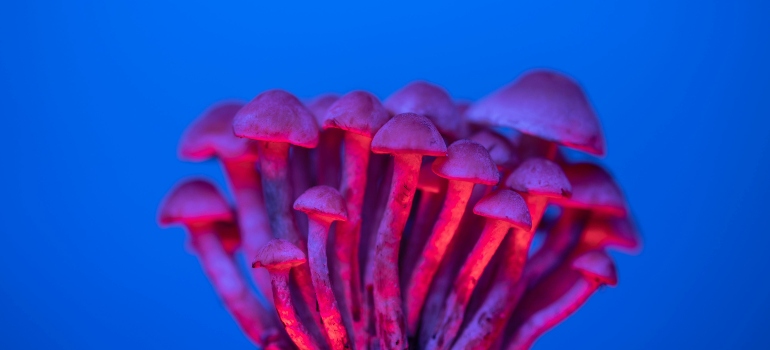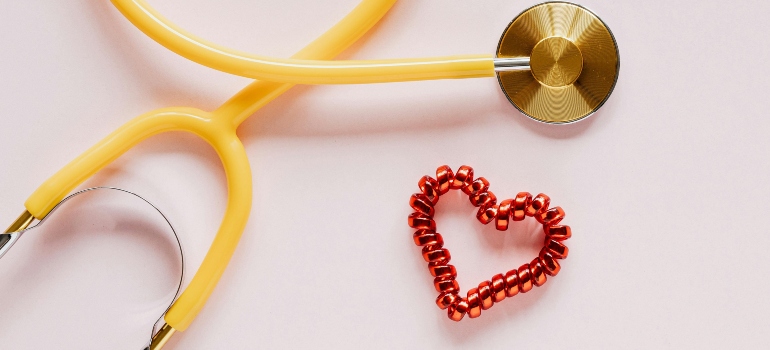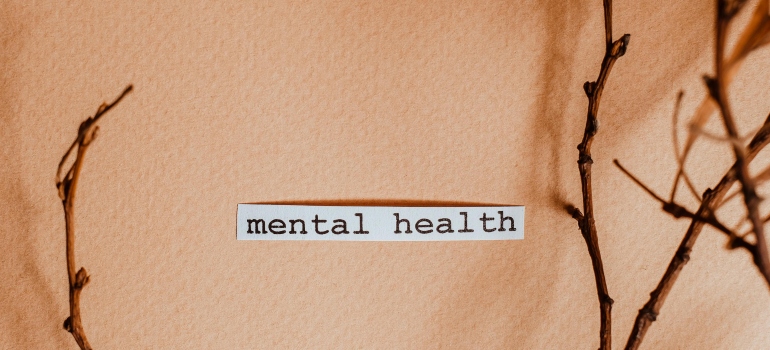Drug abuse and mental health issues have a complex, diverse connection. People usually use drugs as a coping mechanism or self-medication for psychological distress. However, common consumption of various substances may further exacerbate or even cause mental illnesses. It is necessary to know how drugs affect mental health to encourage responsible choices and reduce potential risks. It may be that some drugs initially provide some immediate relief, but this doesn’t last long. Addiction can quickly develop and often consumption of some of the drugs can cause mental illnesses. We will go over the variety of drugs that might result in mental illnesses in this detailed guide, possible side effects, and preventative and treatment options. Whether you’re overcoming these challenges on your own or seeking assistance for a loved one, we will try to provide a solution by directing you to our rehab centers in WV.
The Consequences of Drug Use on Mental Health
Substance misuse may contribute to the growth of new mental health disorders or worsen ones that already exist. While depressants like alcohol and benzodiazepines can cause depression and cognitive impairment, stimulants such as cocaine and amphetamines can trigger anxiety, paranoia, and psychosis. On the other hand, hallucinogens like LSD may trigger serious psychotic episodes, and opioids can numb thoughts and worsen mental health issues. Cannabis consumption has been related to an increased chance of psychosis, particularly in those who are already vulnerable. Additional risks include synthetic medications because of their unpredictable effects on behavior and mood. When taken inappropriately, prescribed medications could also result in a negative impact on mental health. Effective early detection, intervention, and treatment efforts rely upon an understanding of the complex connections between drugs and mental health. All of these drugs can cause mental illnesses if consumed frequently.

Stimulants as Drugs That Can Cause Mental Illnesses
One common group of drugs that can cause mental illnesses is called stimulants. Those raise brain activity which then increases alertness, energy, and focus. People who want to be entirely healthy have to understand how stimulants affect their mental health. Caffeine, nicotine, and prescription drugs are a couple of stimulants that can have positive as well as negative impacts on mental health. It’s important to educate people on the potential risks of stimulant consumption and to get assistance from professionals when necessary. People navigating the complexity of mental health and addiction to drugs can find support and informative resources at Harmony Ridge Recovery Centre. Our goal is to empower people to make smart choices about their health by offering them expert advice and evidence-based practices. Check our website to discover more about stimulants and how they affect mental health.
Exploring the World of Hallucinogens
It is important to know that the misuse of hallucinogens can result in serious and unpredictable psychological side effects, which include paranoia, panic attacks, and hallucinogenic persistent perception disorder. These negative effects can later have an adverse long-term effect on a person’s emotional well-being. These drugs can cause severe perceptual distortions, intense hallucinations, and introspective experiences. It is familiar that these effects of hallucinogens will frequently end with major changes in perspective and mental processes. Although participating in recreational activities may lead to adverse outcomes or psychological suffering, new research indicates that it may also have promising therapeutic benefits. They are usually seen in the treatment of disorders including addiction, PTSD, and depression. Moreover, here are some of the most commonly misused hallucinogens:
- LSD (Lysergic Acid Diethylamide)
- Psilocybin (found in certain mushrooms, often called “magic mushrooms”)
- MDMA (Ecstasy or Molly)
- DMT (Dimethyltryptamine)
- Ketamine

How Mood Disorders and Hallucinations Can Be Triggered by Consuming LSD and MDMA
Many mental health issues, such as hallucinations and depression have been associated with the use of hallucinogenic drugs. These include MDMA, often known as ecstasy, and LSD (lysergic acid diethylamide). Strong hallucinogen LSD changes perception and thought processes, which frequently results in intense hallucinations and reality distortions. Particularly in people who tend to have psychosis, these strong hallucinations can lead to severe psychotic episodes. Similarly, MDMA, which is especially known for its euphoric effects, can affect mood regulation and trigger anxiety and signs of depression. This particularly happens during the comedown period and it can be pretty dangerous. Regular or continuous use of these drugs may worsen these effects and increase the possibility of serious mood disorders like anxiety or depression. These are some of the most dangerous drugs that can cause mental illnesses. Recognizing the possible psychological consequences of these drugs can help harm-reduction methods in local communities.
The Relationship Between Chronic Alcohol Abuse and Depression
Chronic abuse of alcohol has a significant negative effect on mental health. It’s well known that one of the most common outcomes is mostly depression. People who drink an excessive amount of alcohol over an extended period are more likely to experience depression. Alcohol disrupts the brain’s neurotransmitter balance, especially serotonin, which is crucial to the regulation of mood. Chronic abuse of alcohol can also result in neurochemical imbalances and abnormalities of anatomy in the brain. These abnormalities can worsen signs of depression. Also, alcohol abuse can occur along with other difficulties and challenges in life. The intensifying depressing and dismal feelings can become too much to handle. Chronic misuse of alcohol and depression have a reciprocal relationship which means each condition influences the other. So, it’s important to address alcohol abuse through comprehensive treatment methods. In this way, we can help you regulate depression and improve your mental health.
Symptoms of Drug-Induced Mental Health Issues
For quick and effective treatment, you must recognize the early symptoms and indications of drug-induced mental health disorders. Based on the substance in question, the level and frequency of consumption, and individual susceptibility factors, these manifestations can differ significantly. Severe mood disorders like changes in perception such as hallucinations or delusions, cognitive deficits, and noticeable behavioral or social changes are some of the common warning signs. Medical professionals, educators, and close family members must increase awareness to enable early identification and treatment. If untreated, drug-induced mental health problems can cause serious distress, damage, and even long-term mental health problems. By quick identification and control of these indicators, people may receive the necessary support and therapy to reduce the effects of drug-induced mental health problems. Therefore, it is crucial to address the warning signs of addiction as soon as possible before it causes serious damage.
Understanding Mental Health Disorders Related to Substance Use
Addiction and psychotic conditions are deeply connected, and addressing mental health disorders associated with substance use demands an extensive approach. Concurrent treatment of co-occurring disorders recognizes that in order to achieve a good result, every aspect of a patient’s medical condition must be addressed. Support networks and community resources offer individuals valuable connections, continuous support, and assistance throughout their rehabilitation process. Under the supervision of a qualified therapist, group therapy offers a safe space for people to share their experiences and learn from one another. Through collective dialogues and activities, people acquire new perspectives. This also helps them cultivate adaptive abilities, and establish a feeling of friendship, developing mutual help and compassion. In group therapy, the shared journey can promote individual growth and healing, reduce feelings of being alone, and validate feelings.

Identifying Risk Factors and Vulnerable Populations
The susceptibility to drug consumption can vary among generations, but younger generations, particularly millennials and Generation Z are often considered more vulnerable. Factors such as peer influence and easy access to drugs through social media contribute to increased susceptibility among younger individuals. A desire for experimentation and sensation-seeking behavior during adolescence can lead to higher rates of drug consumption. It’s important to understand that different factors can have an impact on an individual’s tendency to use drugs. One of those factors is generational differences, such as personal experiences and socioeconomic standing. Genetic predispositions, concurrent mental health problems, and circumstances like stress or trauma are risk factors for drugs that can lead to mental illnesses. Additionally, extended substance use increases the likelihood of developing psychiatric symptoms. Vulnerable groups, such as those with a family history of mental illness or those who are struggling economically are particularly at risk.
Treating Mental Illnesses Induced by Drugs
A comprehensive approach that treats drug-induced psychiatric symptoms along with substance abuse is required to treat mental diseases linked to drugs. To address the complex relationships between drug addiction and mental health illnesses, integrated therapies often include counseling, medication, and support services. The individual’s emotional, physical, and social needs are prioritized in holistic approaches. Rehabilitation programs frequently include detoxification. Continued therapy and counseling are also addressing underlying problems contributing to both substance abuse and mental illness. Effective symptom management may require psychopharmacological therapies, and customizing drugs to the individual’s mental health condition. Additionally, tailored treatment programs take into consideration the substance used, the individual’s particular circumstances, and the kind and severity of their psychological condition. Integrated therapy is particularly effective for young adult drug rehabilitation as it offers a transitional path toward healing and stability.

Approaches for Substance-Induced Mental Illness Prevention and Intervention
Various techniques aiming to reduce the intensity and frequency of psychological symptoms linked to drug use constitute prevention and intervention strategies for substance-induced mental illness. Prevention efforts focus on developing healthy coping skills, early intervention, and education to reduce risk factors associated with substance misuse. Targeted screening programs help recognize individuals at risk for substance-induced mental illness, enabling prompt diagnosis and treatment. Moreover, integrated care approaches that treat mental health issues in addition to substance use disorders provide all-encompassing help customized to meet the needs of each individual. Support groups and cognitive-behavioral therapy represent two vital psychosocial interventions that assist individuals in controlling cravings, learning coping mechanisms, and sustaining recovery. Healthcare practitioners can successfully reduce the damaging effects of substance-induced mental illness and enhance overall outcomes for affected individuals by integrating preventive and intervention strategies.
Dual Diagnosis Treatment
When a person simultaneously experiences both mental health and substance use disorders (SUDs), clinicians classify it as a dual diagnosis. Constant interactions and impacts between the disorders make diagnosing, treating, and recovering from such a complex condition quite challenging. When compared to individuals with a single disorder, those with dual diagnoses may have more severe symptoms, worse treatment outcomes, and a greater probability of relapse. Integrated therapies that concurrently address mental health and substance abuse concerns play a crucial role in effectively managing dual diagnoses. Behavioral treatments, psychotherapy, medication, and peer support are just a few examples of treatment modalities that can be applied. This is based on the specific needs and circumstances of each patient. For optimal treatment success and to support long-term recovery, mental health and addiction specialists need to work together, provide comprehensive assessments, and follow patients regularly.

It’s important to seek help on time
If you or someone you love is struggling with addiction, do not hesitate to seek help. It’s important to understand the serious impacts that certain drugs may have on mental health. Stimulants, cannabis, opioids, benzodiazepines, hallucinogens, and psychostimulants are among the substances that have the potential to trigger or exacerbate mental health conditions. Protecting yourself calls for understanding the harmful effects of drug consumption, as well as the evident symptoms of mental health problems. You need to get assistance instantly if you experience symptoms of a mental illness or are battling with substance misuse. Quick intervention holds the potential to greatly enhance outcomes and prevent issues from getting worse. There are options available to offer help and support, whether through therapy, counseling, medicine, or support groups. Remember, reaching out for help is a sign of strength and bravery, and it can lead to a path of healing and recovery.



